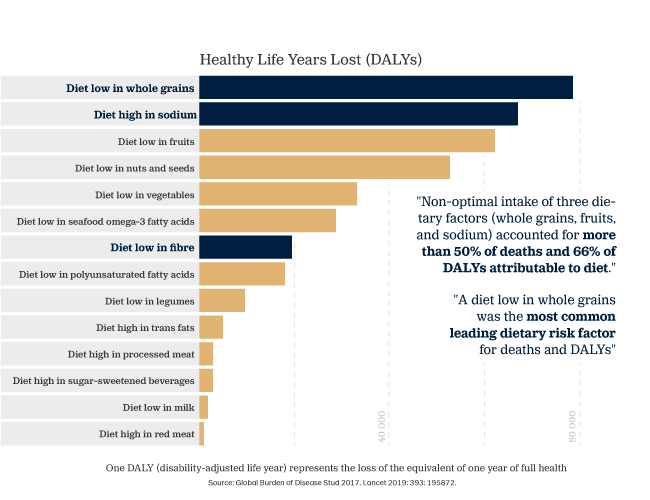Aktywna rola w poprawie zdrowia publicznego
Od zarania dziejów żywność ma wpływ na zdrowie człowieka, a różnego rodaju wypieki, zwłaszcza chleb, od tysięcy lat są częścią historii ludzkości. Odgrywa integralną rolę w codziennym życiu i jest symbolem kultury i historii. Produkty piekarnicze są niezbędne i stanowią klucz do przetrwania ludzkości, będąc podstawą wielu kultur, a nawet stanowiąc formę waluty.
Zwiększone wyzwania
Uprzemysłowiona produkcja żywności, szybka urbanizacja i zmieniający się styl życia zmieniają wzorce żywieniowe. Ludzie na całym świecie spożywają więcej tłuszczów nasyconych, cukru i soli, niż jest to rekomendowane w zaleceniach żywieniowych.
Jednocześnie wraz ze zmianą nawyków ludzie spożywają mniej owoców i warzyw oraz mniej błonnika pokarmowego, szczegolniego tego pochodzącego z produktów pełnoziarnistych, który jest ważnym składnikiem zdrowej diety.
Nadmierne zaś spożywanie soli, cukru i tłuszczy nasyconych przyczynia się do wzrostu obciążenia chorobami związanymi ze stylem życia, takimi jak otyłość i cukrzyca.

Jeden DALY stanowi równowartość jednego utraconego roku życia w zdrowiu.






